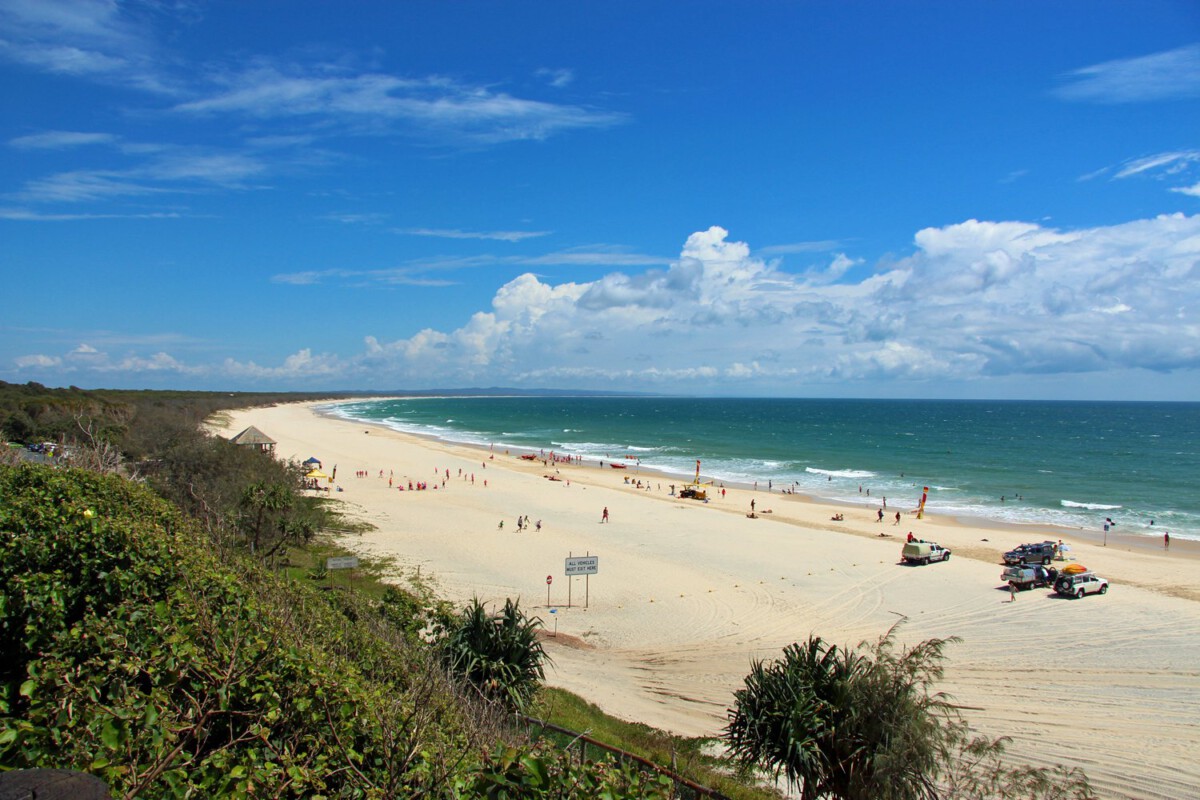Alabama Gets Its Name from Plant-Cutters, Not What You’d Think

When you think of Alabama, cotton fields or football might come to mind, but the state’s name tells a completely different story. Alabama comes from the Creek Confederacy tribe originally called the Alabamas or Alibamons, which in turn gave the name to a river from which the state name was derived. But here’s the twist that catches everyone off guard – the name actually means “plant-cutters” in the Choctaw language, specifically “albah amo”. This wasn’t about farming or gardening in the way we might imagine today. These tribes were skilled at clearing thick vegetation to create settlements and hunting grounds, essentially being the original landscapers of the American South. The practical nature of this name shows how Native American naming conventions often reflected the daily activities that defined a group’s way of life.
California Was Named After a Fictional Black Queen

California’s name traces back to Cortez, who took it from an imaginary island in an old Spanish romance written by Montalvo in 1510, where the island is described as an earthly paradise, abundant with gold and precious gems. The romance novel “Las Sergas de Esplandián” featured Queen Calafia, a fictional character who ruled over an island paradise, and this book was influential among Spanish explorers. What makes this even more fascinating is that Queen Calafia was described as a powerful Black Amazon queen who ruled over a land of warrior women. Spanish conquistadors, dreaming of finding this mythical golden paradise, applied the name to the land they discovered on the Pacific coast. It’s remarkable that the most populous U.S. state got its name from a piece of fantasy literature that celebrated female power and racial diversity – concepts that were quite progressive for the 16th century.
Oregon’s Mystery Name Has Scholars Still Debating

Two hundred and fifty years after the place-name appeared on maps and other documents, details of the etymology of the name Oregon are still being debated, though there is growing consensus that its origin is most likely Algonquian. Professor Thomas Love and Smithsonian linguist Ives Goddard argue that Rogers chose the word based on exposure to either of the Algonquian words wauregan and olighin, both meaning “good and beautiful (river)”. The confusion comes from the fact that there is no word that sounds like “Oregon” in the languages spoken by indigenous people in the West, and it wasn’t actually called the “Oregon River” by any peoples in the region. Think of it like a massive game of telephone that lasted centuries – a word meaning “beautiful river” traveled from Connecticut all the way to the Pacific Northwest, getting transformed along the way until it became something entirely different from its original form.
Idaho Might Be a Complete Fabrication

Idaho’s origin is uncertain, with some claiming it comes from an Indian word of unknown meaning, while others claim it means “gem of the mountains,” and another claim suggests the Shoshone translation of “Edah hoe,” or “light on the mountains”. But here’s where things get really wild – there’s a theory that Idaho was just made up, not derived from any Native American language at all. Most likely it comes from the Apache idaahe, meaning “enemy” and used towards the Comanches. The uncertainty around Idaho’s name is so profound that it’s become a case study in how place names can sometimes be pure invention rather than having any meaningful cultural or linguistic roots. It’s like naming a state “Fluffy” and then spending 150 years trying to figure out what ancient language it came from.
Colorado’s Red Reputation Comes from Muddy Waters

Colorado was presumably named from the river bearing the name, although only tributaries flow through the state, with theories that it might have come from the Spanish word meaning “red” or “ruddy,” describing the color of the stream in various places or the red earth found in some areas. The Spanish colorado means “reddish,” and this designation referred to the Colorado River silt. What’s ironic is that the state most Americans associate with pristine mountain snow and crystal-clear Alpine lakes got its name from muddy, silty water. The Colorado River, which doesn’t even flow through most of the state, was so thick with red sediment that Spanish explorers thought it was the defining characteristic worth naming a territory after. It’s like calling someone “Mudface” because you saw them once after they fell in a puddle.
Vermont’s French Connection Has a Grammar Problem

The French explorer Samuel de Champlain is sometimes credited with coining the name Vermont, but it does not in fact appear until 1777, when it was adopted as the name of the Vermont Republic, representing a French translation of Green Mountain(s). The name is based on French words for “Green Mountain,” but perhaps was formed by one with limited knowledge of French, where the correct form would be Mont Vert. Seven generations of scholars have pointed out that to be grammatical French, the name should be Les Monts Verts, but that’s an awkward mouthful, whereas “Vermont” is easy to say and has a pleasant sound. Essentially, Vermont exists because someone tried to speak French but got the word order backwards. The word Vermont is indeed a translation of Green Mountains, most likely from Thomas Young, a self-made scholar who probably knew some French, creating archaic but excellent French.
Iowa’s Name Basically Calls Its People Lazy

Iowa comes from an Indian tribe, “Ah-hee-oo-ba,” meaning “sleepy ones” or “drowsy ones,” who lived in the valley of the State’s principal river, which they named for their tribe, and in turn, the name was applied to the State. This wasn’t meant as an insult – quite the opposite. The name likely reflected the peaceful, settled nature of the Iowa people compared to more nomadic or warlike tribes in the region. They were known for their stable communities and agricultural lifestyle, which might have seemed “sleepy” to more mobile groups. The name comes from the French Aiouez, named after the Iowa tribe of Native Americans. It’s fascinating that a state known today for its strong work ethic and agricultural productivity carries a name that essentially means “the chill people.” Sometimes the best reputation comes from being underestimated.
Arkansas Has So Many Spellings, Nobody Knows the Original

Arkansas’ origin is uncertain, with various spellings including Alkansia, Alkansas, and Akamsea, and according to some, the word is of Algonquin origin with unknown meaning, while others say Arkansas is a French version of “Kansas,” a Sioux Indian name for “south wind people”. The name comes from the French spelling of the name of the Quapaw peoples. What’s incredible is that we have a state whose name went through so many transformations that we’ve lost track of what it originally meant. It’s like playing that children’s game where you whisper a message around a circle, except this circle included French traders, Spanish explorers, various Native American tribes, and English settlers over several centuries. The result is a name that might mean “south wind people” or might mean something completely different – we’ll probably never know for sure.
Virginia Was Named for a Queen Who Never Had Sex

Virginia’s name (and eventually West Virginia’s) comes from the nickname for Queen Elizabeth I, who was known as the “Virgin Queen” because she never had a husband. The east coast of America around Virginia was extensively visited when English ships first began to explore this region in the 16th century, with Sir Walter Raleigh traveling this way in 1584, and the entire coastal area was named Virginia for Queen Elizabeth I, or ‘The Virgin Queen’ as she was known, due to the fact that she never married and never bore children. Elizabeth I turned her unmarried status into a political weapon, using the possibility of marriage as a diplomatic tool while maintaining complete independence. It’s particularly striking that the first permanent English settlement in America was established in land named after a woman who deliberately chose never to have children. Virginia literally represents the power of a woman who refused to conform to traditional expectations.
Florida’s Name Comes from Easter Flowers

Florida was discovered in the early 1500s by the Spanish during the Easter season and thus originally named Pascua Florida, or “Flowered” or “Flowery Easter”. The timing was everything – Spanish explorer Juan Ponce de León arrived during the Easter season of 1513, and the land was covered in spring blooms. The Spanish called Easter “Pascua Florida” (Flowery Easter), and the abundance of flowers they encountered seemed like a perfect match for the season. What’s beautiful about this is that Florida’s name captures a moment in time when European explorers were overwhelmed by the natural beauty of the New World. Instead of naming it after a king or a saint, they named it after the flowers that were blooming when they arrived – a rare moment of poetry in the often brutal history of colonization.
Pennsylvania Is the Only State Named After Its Founder

Pennsylvania is a combo of the last name of William Penn, the founder of the colony (and later state) and the Latin-derived silvania, or “woodland”. This is the only State in the Union named for its founder, William Penn, who wanted to call it “Sylvania” because of the extensive forest areas. William Penn originally wanted to call his colony just “Sylvania” (meaning woodlands), but King Charles II insisted on adding “Penn” to honor Penn’s father, who had loaned money to the crown. Penn was reportedly embarrassed by having his name attached to the colony, worried that people would think he was being vain. The irony is that the most humble founder in American history ended up being the only one to get a state named after him, and it happened against his wishes.
Rhode Island Might Be Named After Clay or Greece

Rhode Island’s namesake is often debated to be either the Dutch roodt eylandt (“red island” for the red color of the clay on the coast) or the Greek island of Rhodes. Originally called “Roode Eylandt” by the Dutch Navigator Adrian Block, presumably from the redness of the clay in the area along the shore, the name was later anglicized to Rhode Island, though it’s also said to have been named from the Island of Rhodes in the Mediterranean, but several historians give this little or no support. Think about it – the smallest state in the union might be named after either ancient Greek grandeur or just the color of dirt on the beach. The name comes either from the Dutch rood eiland, meaning “red island” or for its resemblance to the Aegean island of Rhodes. It’s the perfect metaphor for how American place names work – sometimes they’re profound historical references, and sometimes they’re just practical observations about what someone saw when they got off the boat.
Texas Actually Means “Friends” in a Native Language

While most people assume Texas got its name from some Spanish word related to size or cattle, the reality is much more heartwarming. Texas is listed among names from Indigenous languages, specifically from the Caddo Indian language where “tejas” means “friends” or “allies.” Spanish explorers heard Native Americans using this word to describe their peaceful relationships with neighboring tribes, and the Spanish adopted it as the name for the region. So the state known for its fierce independence and “Don’t Mess with Texas” attitude actually has a name that means “friendship.” It’s like discovering that the tough guy in your neighborhood got his nickname because he was really good at making friends. The Caddo people’s emphasis on alliance and cooperation became forever embedded in the name of what would become the second-largest state in America.
Connecticut’s Tongue-Twisting Name Means “Beside the Long River”

Connecticut is listed among names from Indigenous languages, and its complex spelling makes more sense when you understand its origins. The name comes from the Mohegan word “quinnitukqut,” which means “beside the long tidal river.” The Connecticut River, which runs through the heart of the state, was the defining geographical feature for the Native Americans who lived there. What’s remarkable is how a relatively simple concept – “next to the big river” – became one of the most challenging state names for Americans to spell. French and English colonists tried to capture the sound of the Mohegan word, but their phonetic interpretations created a spelling nightmare that has tortured schoolchildren for centuries. It’s proof that sometimes the most straightforward ideas become the most complicated when they pass through multiple languages and cultures.
Who would have thought that the names we casually use every day carry such wild stories of mistranslation, fictional queens, and backwards French grammar? The next time you see a license plate or hear someone mention their home state, remember that you’re hearing echoes of ancient languages, medieval romance novels, and the dreams of explorers who were often completely wrong about what they were looking at. Did you expect that America’s map was basically created by a centuries-long game of telephone?





